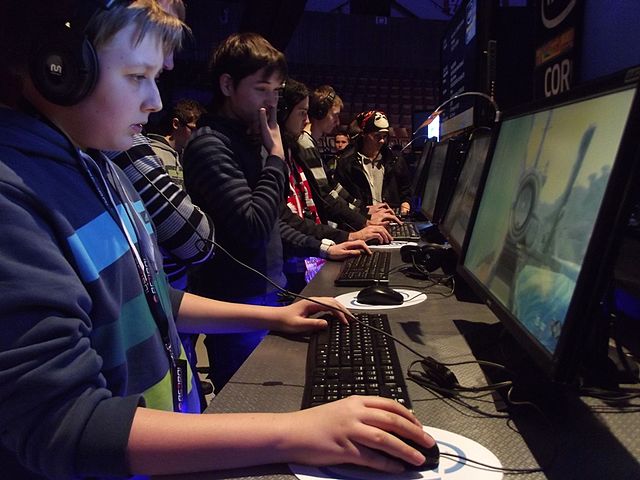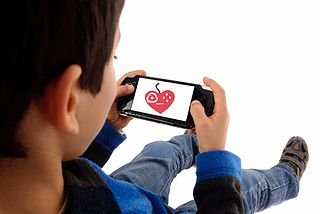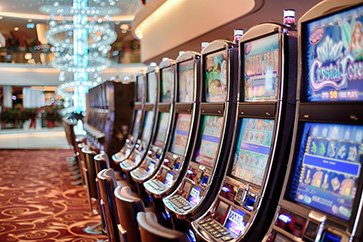The WHO is Going to Classify Gaming Addiction as a Disorder
Gamers beware: the World Health Organization has recently declared that playing video games too often could be a "mental disorder". A draft of the 2018 International Classification of Diseases has the term "Gaming Disorder" added.
.jpg)
Source
They characterize persistent gaming as a disorder because those "afflicted" engage in persistent patterns of gaming behavior. This applies to the standard console gaming systems as well as the new domain of smartphone games.
The gaming behavior becomes a problem (according to the WHO) when you have "symptoms" of impaired control over gaming activity -- i.e. you can't stop playing. This can also develop into increased prioritization of gaming over other interests and daily activities, such as eating, sleeping and socializing with family or friends. At the extreme, this can culminate in a lack of being present for other things that receive less attention and priority in your life, like the recurring loss of personal relationships or getting fired from your job.
This classification by the WHO opens up doctors and insurance companies to consider the gaming habits of individuals as part of their assessments. If you are a gamer, an insurance company could include gaming addiction as part of the coverage, but also charge you more for insurance because of the factors of influence it has in your overall life and well-being. It can also allow people to get free help from a medical standpoint, as opposed to having to deal with their gaming problem on their own.
For some, the classification as a health disorder is likened to the decision in the 1950s to call alcoholism a medical condition. Prior to such classifications, the general public viewed alcoholism as a personal failing, not as a medical issue. But framing alcoholism as a disease model seems to help people accept the problem they have, and work to overcome it.
The same is so for gaming addiction: it's viewed not as a disease but as a possible personal shortcoming in managing priorities. Changing the mindset around people's addiction to gaming could change their view on it being a harmful behavior that is negatively affecting their life. Whether it's actually a real disease or disorder might not be true, but the move to label it as such can get people to think and talk about gaming addiction as a potential problem in life.
A 2011 study found that gaming addiction was related to depression, anxiety, social phobias and ADHD. They wanted to know if excessive gaming was a result of prior mental states, or the causal primary condition. They found that gaming addiction is not just a coping mechanism or symptom of mental health problems. Gaming addiction didn't start the ball rolling for the mental health conditions, but can be seen as aiding to keep them going, according to some researchers.
This new classification has issues compared to other recognized disease or disorders, that being the lack of research to back it up. Games have been a form of leisure for a long time, and that includes the development of video games in arcades, consoles, computers and smartphones. Video games are played by are estimated to be played by 2/3 of kids and teens, as well as a large number of adults.
Video games are a significant part of our current way of life. Many people have mobiles, and that increases the potential for games to be played more frequently, at almost any time of the day, wherever you are. Sales of games exceeds those of music and videos/movies.
But does digit gaming deserve to be pathologised as a disorder?
Many researchers disagree with the WHO and wrote a paper expressing how the WHO is being premature. Researchers who study video games lack a consensus about this being a disorder, noting that the quality of the evidence to classify it as such is low, with no consensus on a definition for the addiction or symptoms. Another paper also addresses disagreements with the WHO's diagnosis.
Those researchers are worried that normal gaming behavior that millions engage in will be labeled as pathological, since the gaming addiction is being written of as being similar to gambling addiction. There is a strong desire among people who are worried about their children being negatively affected by gaming, which might be a social panic fueling bad research through researchers motivated to get published, get press attention, or advance their careers because of an increase in grant money for this type of research.
Video games can be more of a coping mechanism from underlying issues of depression or anxiety, as opposed to a cause of it. That wouldn't really make it a disorder, but instead the result of underlying causal motivators that drive excessive gaming behavior for some people. A small subset of gamers could be struggling, but not that all gaming addiction is directly related to mental disorders. There can be other factors that are unclear, and some researchers are saying the current WHO classification is based on unsound science.
- What do you think of gaming addiction?
- Are you a gamer?
- Do you spend a lot of time gaming?
- Does gaming get in the way of other aspects of your life you could better be spending time on?
Have your say!
References:
- 'Gaming Disorder' recognized as a worldwide mental health condition
- WHO gaming addiction classification an important step for treatment, says expert
- Gaming addiction as a mental disorder—it's premature to pathologize players
Thank you for your time and attention. Peace.
Recent posts:
- Deconstructing Illusory Perceptions to Reconstruct Accurate Reflections of Reality
- The Depressive Effects of Perfectionism Reduced Through Self-Compassion
- Does Social Media Decrease Human Contact?
- Does Punishment Produce More Cooperation?
- What is Belief?
- The Power of a Gentle Touch
- Reality, Consciousness and Symbols, and the Identification, Valuation and Attachment to Beliefs
- Cryptocurrencies are Dependent on Bitcoin's Value, but Isolated from Traditional Assets and Markets (For Now)
- A World Where Not Reporting an Illness is a Crime
- The Evolutionary Role of Gossip
If you appreciate and value the content, please consider: Upvoting, Sharing or Reblogging below.
 me for more content to come!
me for more content to come!
My goal is to share knowledge, truth and moral understanding in order to help change the world for the better. If you appreciate and value what I do, please consider supporting me as a Steem Witness by voting for me at the bottom of the Witness page; or just click on the upvote button if I am in the top 50.



Can't say that I am entirely surprised.
Let's face it, a lot of games are designed to be addictive, in the sense that some can become addicted to the tiny shots of dopamine that come with each correctly solved problem, or "victory,"or "kill" or whatever. Even social media; even Steemit... represents a sort of "gamification" of interaction where we get "little rewards" for various actions, and that keeps people coming back, like rats in a lab experiment.
Of course, that's a supreme oversimplification. I've never really bee much of a gamer in the direct sense, but I am borderline "addicted" to social media interactions because my "doing them well" drives a couple of online businesses. Which brings me to the next point...
Big Whooping Deal... what do we do to take this trend (good, bad, addictive or whatever) and turn it from potentially DE-structive into CON-structive? For example, however I may classify my online habits, I am trying to translate them into something that offers me more than merely sitting in the corner with a controller and giant pile of pizza boxes while a few drops of drool run down my unshaven face...
Opinion aside, cool topic!
Good habits, bad habits, addictions - they're all elements of modern humans and the society we created for ourselves. Where personal failing ends and social disease begins, who can say? Maybe it's just really a matter of opinion.
I think the idea behind what the WHO are doing is pretty sensible. Children do things to excess, as do teens as do adults, even. If you can make a living out of it, as an adult here on steemit, say, then it's to be applauded. But an attempt to reduce the impact in younger age groups has to be a good thing.
The content of video games is often questionable, isn't it? You have GTA with violence and sex in it. I'm not sure I'd want any child of mine spending too many hours on that series. And then there are the simulations / MMORPGs (?) that are designed to go on pretty much forever dragging their players in further and further. As far as their imaginations are willing to be led.
Where it doesn't impact on the rest of a person's life too much, then there's no problem, I guess. But with video games being so profitable (and how capitalism loves a profitable industry), it's in just about everybody's interests to ensure things don't get totally out of hand and a desirable equilibrium gets to be maintained.
Oh, the hours I've lost being cheated by the computer at Civ.... :(
"Oh, the hours I've lost being cheated by the computer at Civ.... :("
With you there brother. 100%.... Always told myself "just one more turn"
The game Solaris is muuuuuch worse though. It hurts even more when Steam shows you how many hours you've played.
Yup, MMORPGs and other infinite game play, from strategy to shooters, are not good to keep engaging in. Such a sap on the short time in life. I don't like them. Games get designed with layers of achievements to play on our reward center and keep us wanting to "achieve" more. I've only played single player shooters when I wanted to, because it has a beginning and end with a story, and you don't just keep playing online over and over. Thanks for the feedback.
Indeed, many things can become addicting. We are "hard-wired" to seek rewards in some way. As long as there is a real-world benefit, such as making money for survival, then at least an addiction like Steemit can have a beneficial component to act as a constructive part of our lives :) Thanks for the feedback.
Hrm... I have no dog in the fight, not being a gamer, but the shrinks-that-be are pathologizing an awful lot these days.
Yeah, watch out for the Oppositional Defiant Disorder (ODD) "diagnosis"... no one dare stand up to authority... lol
while claiming some truly pathological shit is normal!
That's a definite sign that something funny's going on behind the scenes. I wonder if it's a power play, or if the shrinks fear being attacked by pressure groups with real power. There's actually a case for the latter.
The APA is a political organization not a scientific one, they determine what is and is not a disorder by consensus of people who attended the most liberal colleges in the country.
When dealing with addictive behaviors, which can include substances or simply a hobby taken too far so as to be detrimental in some way, one should not focus on the addiction itself. One depressed person may drink, another may eat, another may shop, another work. All of these are benign if kept in balance, but anything can be abused. We need to look at what has made the person depressed in the first place. No, it's not a chemical imbalance. A chemical imbalance in the brain is the result of the problem, not the cause. Everyone has a unique life with unique difficulties and we all have much suffering to learn from. And that's the point, to learn from suffering rather than run away from it.
Indeed, most depression is about a psychological root cause that is not being addressed and overcome. Thanks for the feedback.
I definitely think it is a growing problem especially with the younger generation. Rather than exploring, imagining and being forced to entertain themselves they simply get hypnotized by this "fake" world. Seeing the zoned out stare of my nephew in front of an ipad is unnerving. Who knows what the repercussions of this "harmless" activity will be. I have been a gamer in the past, spending hours on end. I believe that they are fine for entertainment sake here and there.
Yeah here and there, but like you say, it's a fake world, and our limited time in life gets sucked into pointless virtual realities, while doing things that matter and can propel us forward in real life are not done. We need to get back to reality overall and focus on the real world that matters, not a virtual world that get us nowhere real.
I do wonder how some of these kids won't be crippled by carpel tunnel by the time they are 40, I had to quit playing games. too many repetitive movements. that's why I do this now.
Watch out with keyboards too, too much typing can get you issues in the fingers ;)
I make sure to use proper wrist support
Next on the list Steemit Disorder when someone is using steem so much that it disrupts all other parts of their life.
Right on ;) Someday when it gets popular enough to gain mainstream attentionlike gaming or social media... lol.
I think what's actually addictive is the screen. People are addicted to tv and social media too. I was once addicted to gaming, it pulls you in in an odd way. Plus there is the competitive aspect and the escapism aspect.
I found video games to be more addicting than even sugar in my experience. Part of this was due to the social aspect. If your friends game it's hard not to. The only thing that broke me out of gaming was girls, for obvious reasons, and spirituality, which I found it far more interesting, rewarding, and challenging
Way to go, glad you got out of it. It's a big waste of time in our short lives. Escapism is a big part, as playing and doing something you can't do in real life, is attractive to escape to and from our often "boring" lives by comparison.
Sure games can be addictive, but so is binge watching an entire season on Netflix in a day or two. I'm 35 now and have been playing video games for a long time. I'm certainly a gamer but it doesn't consume my life. I think maybe the gaming might not be the disorder and maybe it's the ability to become addicted might be the issue. Maybe if it wasn't video games, it would be something else.
On the other hand, I personally know people that are addicted to video games. I think it might have something to do with nobody stepping in and teaching them how to control their gaming desires to keep them at a manageable level and to not let them take over. You should be taught at a young age that games can be fun, but it's possible to overdue it.
Good point.
Can't decide if its a bad or a good thing...
And then, when The US says you need to not have a clean bill of health from your psychologists to get a gun, well all the gamers will be denied.
So, basically, they found a back door to deny all men the 2nd amendment rights.
Hehe! That's possible around the corner ;)